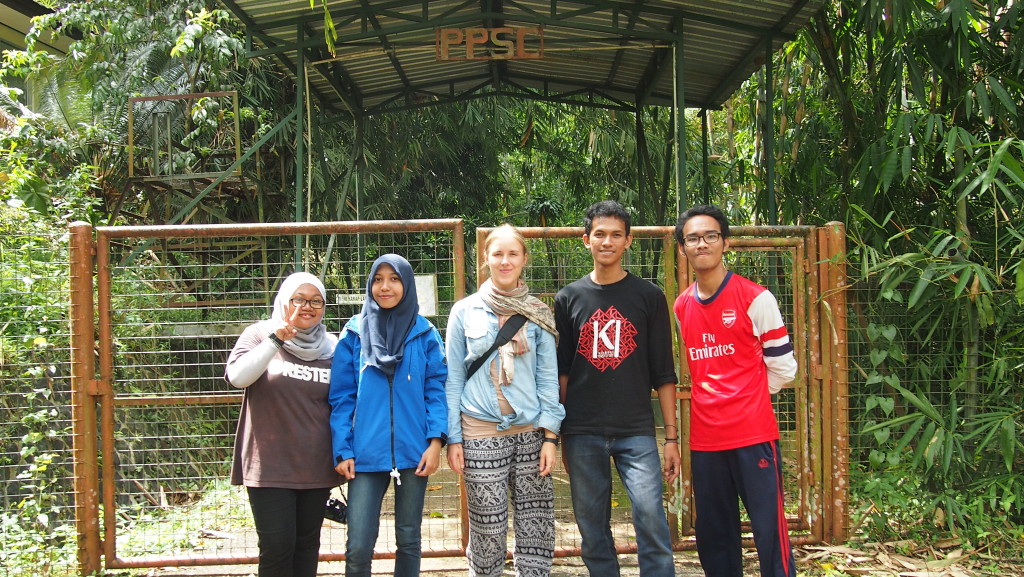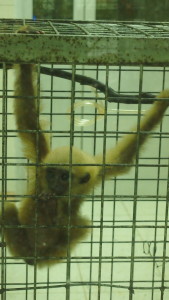
Indonesia is a country full of exotic wildlife. Some are so fluffy, cute and adorable that people all over the world keep them as pets. Yet, their new parents have to realize that animals such as monkeys and leopards soon grow out of their adorable baby body and become the wild housemates we know from television. Here, rescue and rehabilitation centres like the Cikananga Rescue Centre become crucially important. With over 14 hectares, Indonesia’s largest, active rescue centre aims to “become an internationally accredited wild animal rescue centre”. This includes providing “care and rehabilitation for rescued Indonesian wildlife” as well as “repatriate Indonesian animals from abroad”. Projects within the centre include breeding programs with the Javan warty pig and the Black-winged starling. Both species whose numbers have declined considerably in the past are now threatened by extinction. The breeding programs are supported by the Zoologische Gesellschaft für Arten- und Populationsschutz (ZGAP). Other projects include the Macaque rehabilitation project, animal rescue project (for reintroduction and permanent sanctuary) and project SERO (Supportive Environments for the Region’s Otter). On top of that, Cikananga rescue centre is partnered with local Universities providing student training and education programs for schools. The centre also acts as a host for workshops (e.g. CITES and LFP). Animals come to the centre brought by their previous owners, as confiscated victims of illegal wildlife trade or by the police. Sometimes motherless or injured individuals are brought to the centre. Current guests here include Macaques, Orang-Utans, Black Javan Leopards, Sun bears, Estuarine Crocodiles, Buffy Fish Owl, Crested Serpent-Eagle and Slow Lorises.

Set in the middle of forest, Cikananga rescue centre is found about an hour drive from Sukabumi, accessible with motorbike or car. The centre is run by Indonesian animal keepers and volunteers from all over the world. Volunteers live at the centre and are provided with food and laundry service. Working hours are two shifts a day for a total of 6-7 hours a day for six days a week. There is always a good atmosphere amongst volunteers and the evenings are used for card game tournaments and other fun activities. Volunteers clean animal enclosures, prepare animal food and make sure that all animals are happy and in good condition. This is ensured by preparing fun toys for the animals and regular check-ups by the centre’s veterinarian. LFP is collaborating with Cikananga rescue centre by exchanging knowledge about Slow Loris keeping. Sometimes LFP volunteers also spend time at Cikananga rescue centre and vice versa. This ensures an ongoing exchange of knowledge and support for both projects. Herewith we are able to enhance the conditions for captive Slow Loris and our beloved wild friends can benefit all over the world.
- Ina-Kathrinn Spey, LFP volunteer
